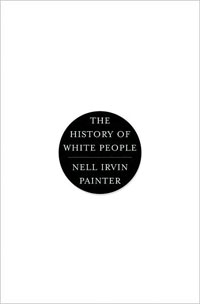The Souls of White Folk

Behind what some readers might consider an audacious, tongue-in-chic title lies a fairly simple thesis about racial taxonomy and historical invention. Historian Nell Irvin Painter’s (Southern History Across the Color Line) new book The History Of White People (WW Norton) argues that “race” is a human contrivance, made malleable by shifting historical circumstances and forces.
Perhaps you can follow historian Painter’s intention from this pronouncement:
Construction of White Americans from Antiquity to the Present
Actually, one would do well to skim past Painter’s introduction and statement of her thesis to the rich and significant historical data that she has mined—though it might have been more clear if the book had been more appropriately entitled, The History of White People (in America).
